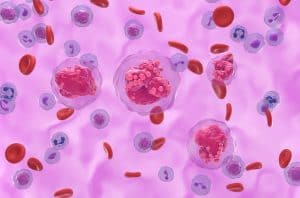Mail backs down over NICE ‘champagne perks’ attack
pharmafile | January 24, 2014 | News story | Medical Communications, Sales and Marketing | Daily Mail, NHS, NICE, UK, spending
The Daily Mail newspaper has backed down on an article it published earlier this month, which alleged that staff at UK medicines watchdog NICE spent public funds on champagne.
Titled ‘Champagne perks of NHS drug watchdog’, the article said that NICE staff had spent thousands of pounds at Searcy’s, a chain of champagne bars in London.
The piece infuriated NICE, which issued a robust defence of its financial activities via a letter to the paper from chief executive Sir Andrew Dillon.
In a clarification published nearly two weeks later, the newspaper said: “An article about spending by officials of NICE…on 11 January said that £3,346 was spent at a chain of champagne bars. We have been asked to make clear that this sum was for room hire and catering for committee meetings on two occasions at the Royal College of GPs and the Commonwealth Club.”
This falls some way short of the apology which NICE had demanded but this public setting straight of the record will be welcomed nonetheless.
The organisation maintained from the start that the Mail article was misleading and damaged NICE’s reputation and will see this as a partial victory.
John Davidson, NICE associate director, media relations, told Pharmafocus: “The money spent at Searcy’s was on meeting rooms and sandwiches at the Royal College of GPs and Commonwealth Club which they manage – but they leapt to the conclusion that it was at champagne bars which Searcy’s also happen to run.”
He added: “There was a deliberate use of language implying something completely outrageous.”
The Mail had quoted Robert Oxley, of the TaxPayers’ Alliance, as saying: “The contrast of people dying of thirst on wards while officials blow taxpayers’ money at a champagne bar could not be more striking. The NHS should cut out waste, axe this quango and focus budgets on patient care.”
The article said: “The body in charge of rationing NHS drugs has spent thousands of pounds on five-star hotels, champagne and a John Lewis shopping spree” and made a direct link between NICE’s spending and the capability of the NHS to treat patients.
“The money comes out of the NHS’s £106 billion budget, so the more that NICE and other bodies spend on credit cards, the less there is available for treatments, scans and frontline staff,” the piece continued.
NICE explained that separate bills of £600 and £550 at John Lewis were for mobile devices used by the web development team.
“There were no ‘perks’ – it wasn’t as if there were benefits,” Davidson retorted. “The idea in the article was that we’d spent money at John Lewis that was somehow inappropriate – in fact it was entirely appropriate. We have to make sure that the software we use can be used on that equipment. John Lewis offered the best deal.”
NICE insists that it has no problem with accounting clearly for everything it does.
“It’s important that we use the money that has been entrusted to us by the taxpayer carefully,” Davidson went on. “In this case, all the expenditure has been committed appropriately. While the Daily Mail has the right, and even the duty, to examine what we do, and how we spend taxpayers’ money, they must do that with due care and attention. People who know NICE and the way we operate will know that it wasn’t a fair report.”
Asked whether NICE felt there was more intense scrutiny on the watchdog given the pressure on NHS budgets, Davidson said: “Whether the scrutiny is intense or not isn’t the point. I don’t think there’s anything wrong with scrutiny – the problem is they misrepresented the facts. It’s important for us to be transparent.”
The Mail article also highlighted money spent by NICE staff on ‘luxury hotels’. This included £800 at the Fairfont Miramar in California, £820 at the Empire Hotel in New York, £522 at the “five-star Ritz Carlton Hotel in Osaka, Japan” and another £1,382 at the Melia Hotel in Berlin.
In his original response to the article, Sir Andrew said: “These hotels used outside the UK were selected on the basis of the business requirements of the work involved.”
The Mail also questioned another £624 spent on a website specialising in home and garden equipment: NICE said this outlay was for ‘office storage cupboards’.
Another £3,800 on camcorders was “for video equipment used for training and other media-related work”.
In his letter to the paper, Sir Andrew said: “We use the public money entrusted to us carefully, not just because of our responsibility to advise the NHS on the effective and cost-effective use of treatments, but because it’s rightly what we are expected to do.”
NICE explained that some senior staff have access to corporate credit cards for use on official business. “They are mainly used to pay for hotel accommodation but can also be used to meet travel costs, for meals and other incidental expenditure,” the organisation said.
“Senior procurement staff also have access to a card to purchase goods and services that cannot be paid for by any other means,” it added.
Adam Hill
Related Content

NICE recommends migraine treatment for NHS use
The National Institute for Health and Care Excellence (NICE) has shared draft guidance recommending AbbVie’s …

GSK’s Jemperli recommended by NICE for endometrial cancer treatment
GSK has announced that the National Institute for Health and Care Excellence (NICE) has recommended …

NICE recommends SC treatment of AbbVie’s Tepkinly for patients with DLBCL
AbbVie has announced that the National Institute for Health and Care Excellence (NICE) has recommended …








